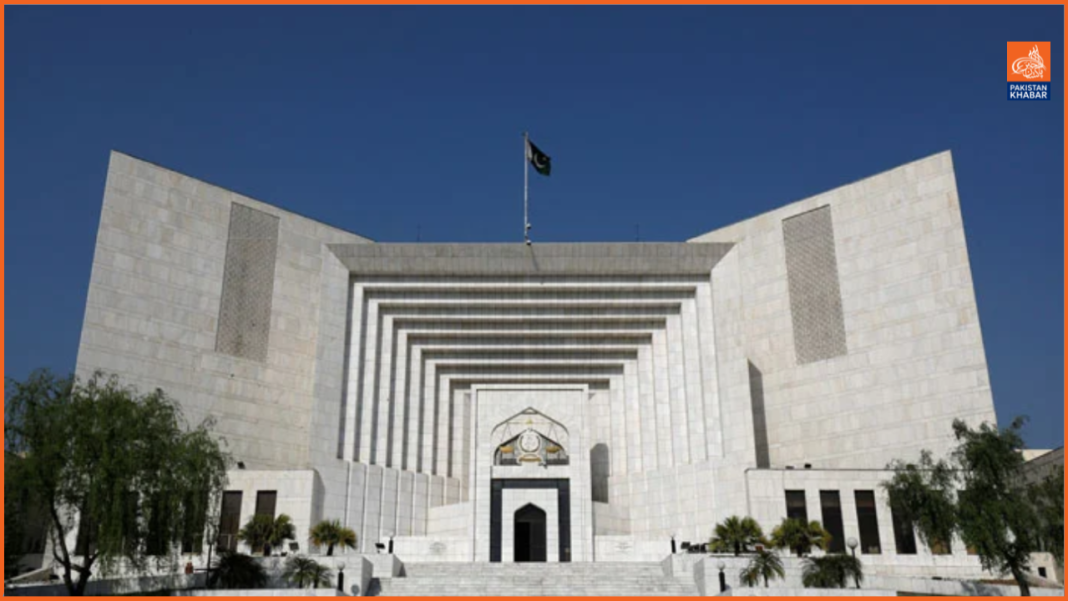On Wednesday, the Supreme Court of Pakistan took a significant step in the ongoing legal battle surrounding the defection clause under Article 63-A of the Constitution by dismissing an objection from the legal team of PTI founder Imran Khan. This objection pertained to the composition of the bench reviewing the court’s previous ruling from May 17, 2022, which determined that any votes cast against the directives of a parliamentary party would not be recognized.
Article 63-A is a crucial provision that aims to uphold party discipline by restricting lawmakers’ voting powers. It mandates that lawmakers adhere to the decisions made by their party’s leader, referred to as the “Party Head.” Should they defy this clause, they face disqualification from the National Assembly and the consequent loss of their legislative seat.
The current review petition, brought forth by the Supreme Court Bar Association (SCBA), was examined by a five-member bench led by Chief Justice Qazi Faez Isa. This bench also included Justices Naeem Akhtar Afghan, Aminuddin Khan, Jamal Khan Mandokhail, and Mazhar Alam Khan Miankhel. Notably, Justice Afghan stepped in after the withdrawal of Justices Munib Akhtar and Syed Mansoor Ali Shah from participating in the larger bench.
During the proceedings, SCBA President Shahzad Shaukat presented the association’s arguments, challenging the rationale of the previous bench’s ruling regarding a presidential reference. As the hearing progressed, Imran Khan’s legal representative, Senator Ali Zafar, sought additional time to consult with his client, prompting the Chief Justice to question why such a request was not made earlier.
Tensions escalated when Mustafeen Kazmi, identifying himself as a PTI lawyer, confronted the bench. He criticized the bench’s constitutionality and made inflammatory remarks, asserting that a large contingent of lawyers was prepared to challenge the court’s decisions, leading to his removal from the courtroom by the Chief Justice.
As the hearing continued, Zafar maintained that the bench lacked legitimacy, emphasizing the need for proper notice to be issued to all respondents. He cited the Supreme Court Practice and Procedure Act, arguing that the formation of benches should reflect a majority opinion from a designated committee of judges, a point met with scrutiny from the justices.
CJP Isa remarked on the importance of maintaining institutional integrity, stating that the court would not tolerate any semblance of authoritarianism. He expressed a willingness to convene a full court to address the raised concerns, underscoring the necessity for transparency and adherence to judicial norms.
In the end, the court unanimously dismissed the objection put forth by Imran Khan’s counsel, allowing for a brief meeting between Zafar and Khan to discuss the ongoing case. The proceedings were adjourned, signaling a complex and evolving legal landscape surrounding Pakistan’s political framework and the pivotal role of the judiciary.




